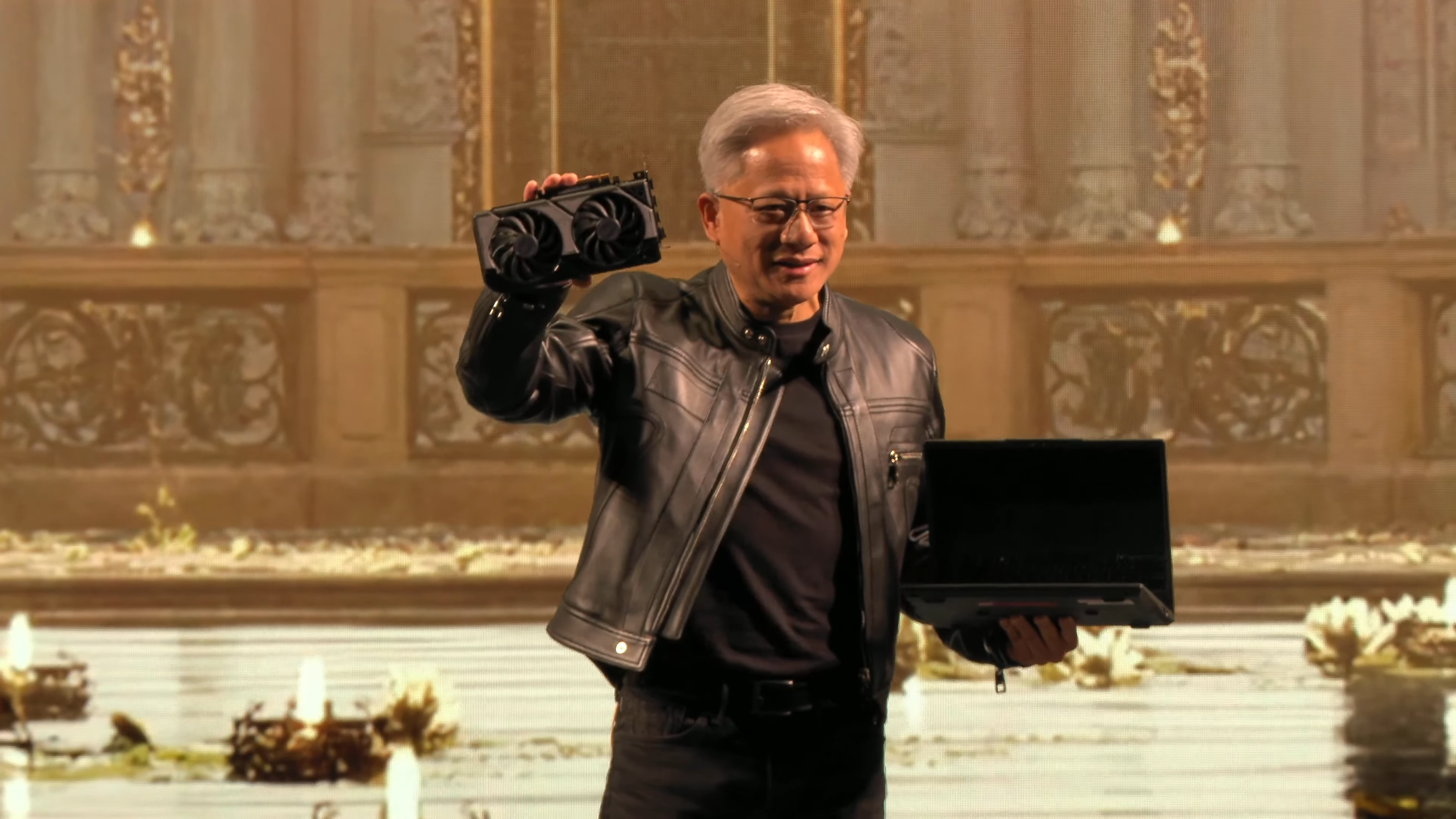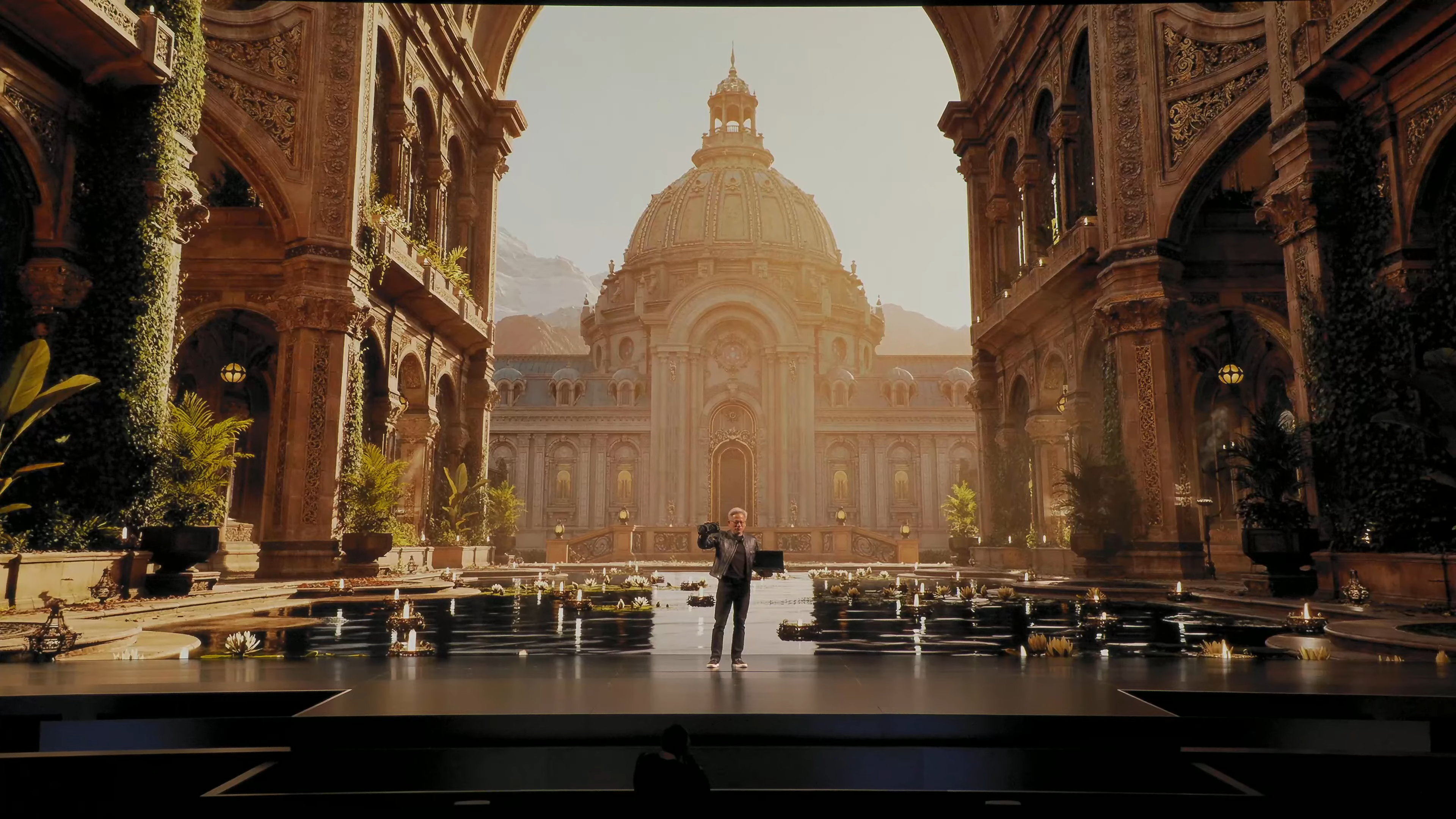Nvidia CEO Jensen Huang says 'PC gaming is now 30 years old,' and I'm here to say 'um, actually'
Huang definitely doesn't need the history lesson—but here I am with one anyway.

Keep up to date with the most important stories and the best deals, as picked by the PC Gamer team.
You are now subscribed
Your newsletter sign-up was successful
Want to add more newsletters?

Every Friday
GamesRadar+
Your weekly update on everything you could ever want to know about the games you already love, games we know you're going to love in the near future, and tales from the communities that surround them.

Every Thursday
GTA 6 O'clock
Our special GTA 6 newsletter, with breaking news, insider info, and rumor analysis from the award-winning GTA 6 O'clock experts.

Every Friday
Knowledge
From the creators of Edge: A weekly videogame industry newsletter with analysis from expert writers, guidance from professionals, and insight into what's on the horizon.

Every Thursday
The Setup
Hardware nerds unite, sign up to our free tech newsletter for a weekly digest of the hottest new tech, the latest gadgets on the test bench, and much more.

Every Wednesday
Switch 2 Spotlight
Sign up to our new Switch 2 newsletter, where we bring you the latest talking points on Nintendo's new console each week, bring you up to date on the news, and recommend what games to play.

Every Saturday
The Watchlist
Subscribe for a weekly digest of the movie and TV news that matters, direct to your inbox. From first-look trailers, interviews, reviews and explainers, we've got you covered.

Once a month
SFX
Get sneak previews, exclusive competitions and details of special events each month!
No one likes the 'um, actually' guy. Whatever momentary high an um-actually-arsehole gets from jumping on a technicality in an off-the-cuff remark is either completely drowned out, or worse, strengthened by the resulting collective groan. Unfortunately, today, I'm going to be the 'um, actually' guy. My target? Nvidia CEO Jensen Huang—this can only end well for me!
During Nvidia's live keynote at Computex 2025, Huang reflected on the success of GeForce and its position within the business today. On stage, Huang said that though the company owes a lot of its success to GeForce specifically, "our keynote is 90% not GeForce. But it's not because we don't love GeForce." He then added, "GeForce RTX 50-series just had its most successful launch ever, the fastest launch in our history. And PC gaming is now 30 years old—so that tells you something about how incredible GeForce is."
So, what's wrong with that? Well, setting aside the various issues that left much to be desired about the 50-series launch, it's the simple fact that PC gaming easily pre-dates Nvidia's GeForce product line. To begin at the beginning, the GeForce 256 debuted in October 1999 and is largely credited with introducing many PC gamers to the modern concept of a Graphics Processing Unit.
Still, it's not really fair to imply we wouldn't have PC gaming without Nvidia; it's understandable why the CEO of Nvidia would conflate the history of GeForce and the company with that of the platform itself during such a high-profile keynote but, simply put, PC gaming existed long before Nvidia was but a glimmer in Jensen Huang's eye.
You're probably already groaning, but allow me to explain a little more: I'm dating myself here, but you wanna know which massively influential game I share a birth year with? Doom. That's right, I'm as old as the first-person shooter genre as well as this here fine publication—but PC gaming is even older than that.

For a start, my American colleagues could probably wax lyrical about the Commodore 64 (to say nothing about this doughnut shop in Indiana that's still using one of the 42-year-old machines as part of its register system). However, as a Brit, I'd be much more in my element talking about copying game code out of the back of a magazine for the ZX Spectrum from 1982.
Conferring with my colleagues encouraged me to get even more into the weeds (should that be 'conifer-ring'?); the whole concept of a 'personal computer' pre-dates the aforementioned 8-bit systems, with the term originating with the release of the IBM PC in 1981—and you can bet your bottom dollar that people were trying to play games on that too. Basically, the concept of gaming on an upgradeable computer as opposed to a console is definitely older than a mere 30 years.
Keep up to date with the most important stories and the best deals, as picked by the PC Gamer team.
There you go, that's the 'um, actually'—unless you'd like to hear the one about how PC gaming as we know it was technically born on an oscilloscope in the 50's. Point is, we have always been asking 'but can I play games on it?' To say PC gaming is only three decades old takes an extremely narrow view of the history (to say absolutely nothing about what we lose when we focus on a purely Anglophone perspective).

Catch up with Computex 2025: We're on the ground at Taiwan's biggest tech show to see what Nvidia, AMD, Intel, Asus, Gigabyte, MSI and more have to show.
But back to the here and now for Nvidia. The 'PC gaming is now 30 years old' comment was preceded by Huang saying, "GeForce brought AI to the world, now AI came back, and revolutionised GeForce." Besides bold claims earlier this year that the Nvidia RTX 5070 released in February would offer 'RTX 4090 performance at $549' thanks to DLSS 4 with AI-powered Multi Frame Generation, the company isn't simply content to leverage AI neural rendering to enhance the performance of its graphics cards. To say Nvidia is all in on AI is perhaps akin to beating a dead horse.
Recent Nvidia projects like G-Assist AI overlay as well as the actually pretty neat Signs, an AI-led platform designed to teach American Sign Language for free, are small potatoes compared to the $115.2 billion raked in by data centers alone this fiscal year. Nvidia EVP and CFO Colette Kress attributed this to, "Customers [...] racing to scale infrastructure to train the next generation of cutting edge models and unlock the next level of AI capabilities."
These data centre earnings easily overshadow what is far from loose change made by Nvidia's gaming division. Still, though PC gaming doesn't begin or end with Nvidia, the company obviously still has tremendous influence over the space. A case in point would be the company's stringent guidelines to the press covering the release of their latest graphics card, which you can read all about in Dave's live Nvidia RTX 5060 review.

Jess has been writing about games for over ten years, spending the last seven working on print publications PLAY and Official PlayStation Magazine. When she’s not writing about all things hardware here, she’s getting cosy with a horror classic, ranting about a cult hit to a captive audience, or tinkering with some tabletop nonsense.
You must confirm your public display name before commenting
Please logout and then login again, you will then be prompted to enter your display name.

